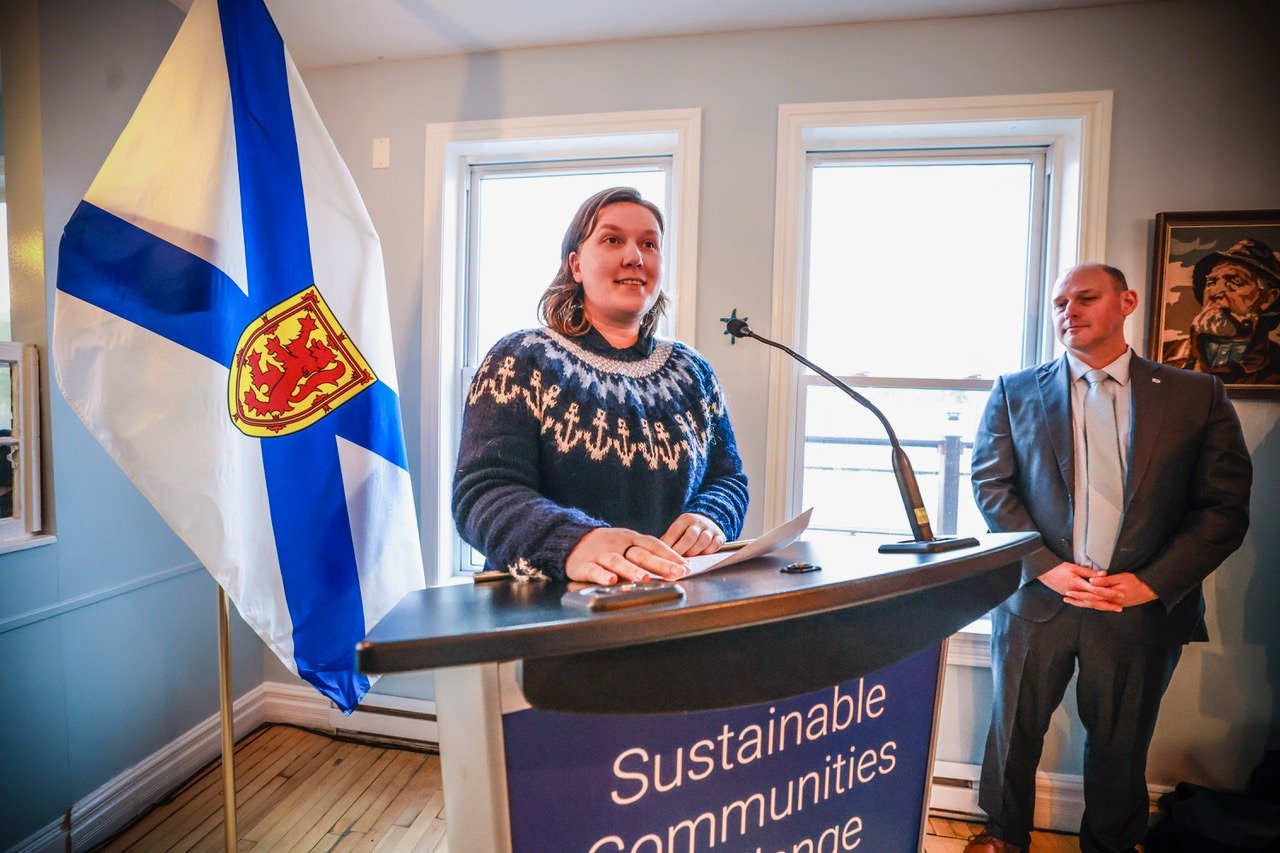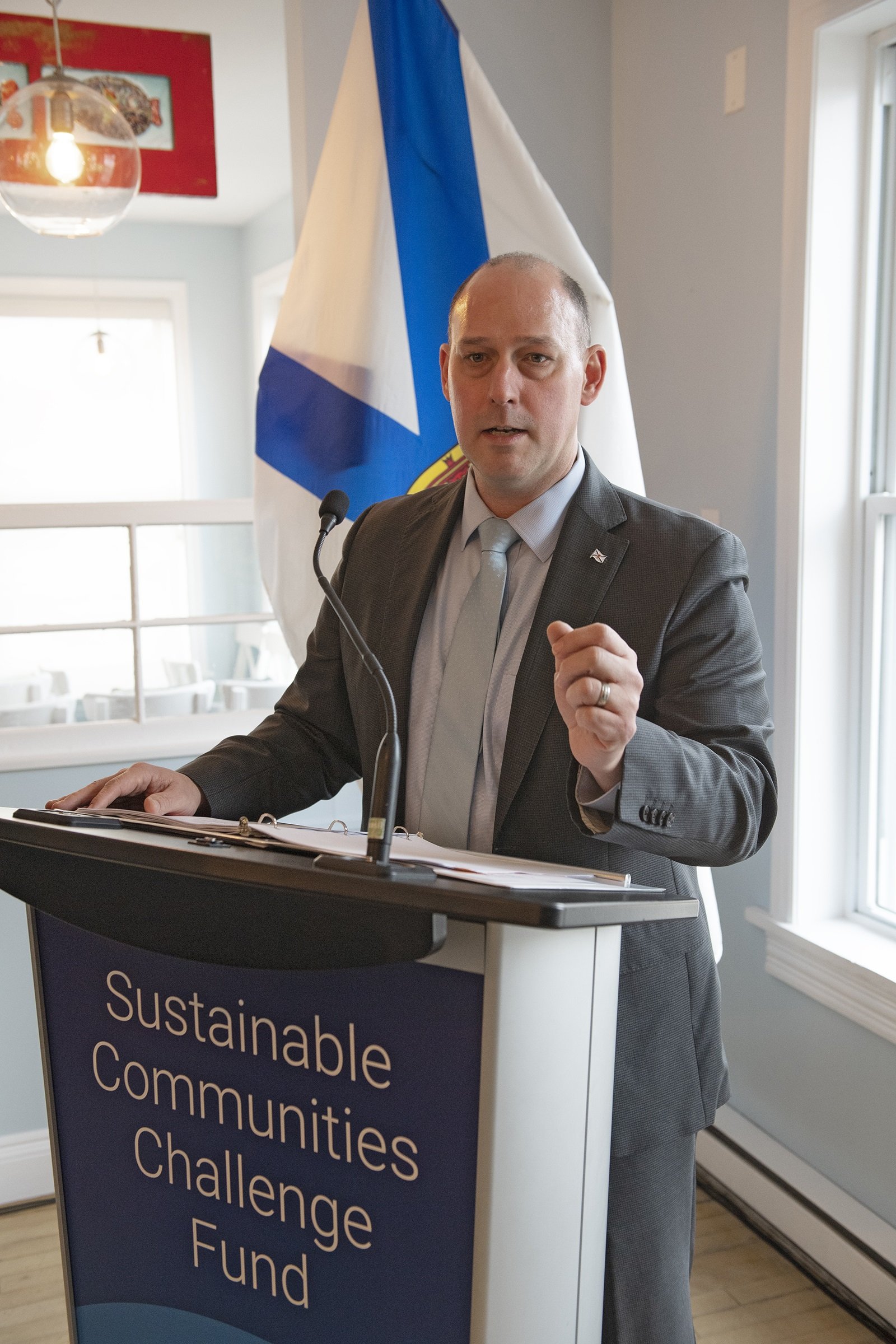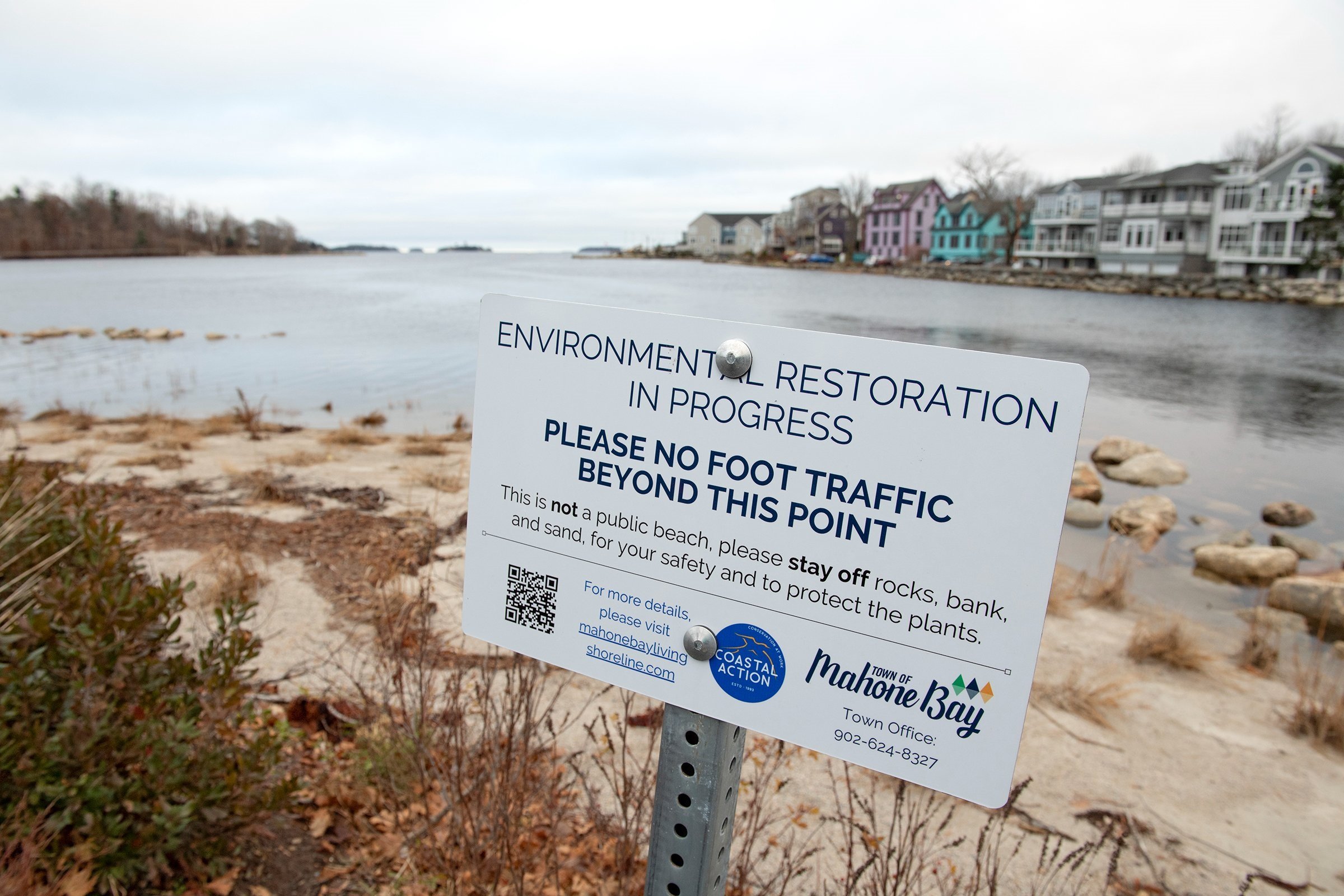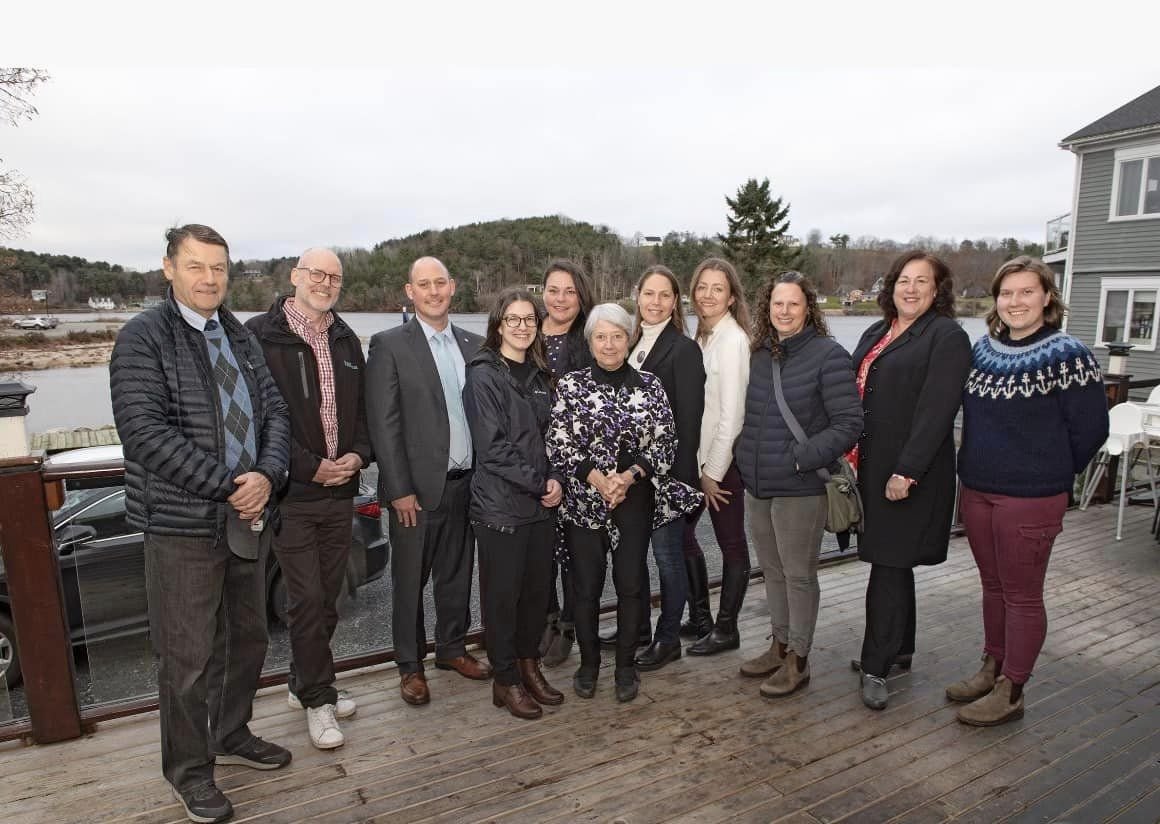





TransCoastal Adaptations is building on the success of a program that helps homeowners in coastal communities protect and revitalize their shorelines, thanks to an injection of funding from the provincial government.
More than $2.45 million from the Sustainable Communities Challenge Fund will support seven community-led projects that are helping Nova Scotians prepare for and respond to climate change impacts. One of those projects is the Green Shores for Homes program with TransCoastal Adaptations: Centre for Nature-Based Solutions at Saint Mary’s University.
Environment and Climate Change Minister Timothy Halman announced the funding at an event in Mahone Bay on November 23.
“This summer was a heartbreaking reminder of the destruction and loss that climate change is causing,” said Minister Halman. “It was also a reminder that all Nova Scotians must work together to protect each other, our homes, communities and natural areas from climate change. These projects–many of which involve best practices in using nature-based solutions–show exactly the kind of community-led, all-hands-on-deck action that is needed to make our communities and ecosystems more resilient to climate change and to protect all that we hold dear.”
With $238,098 from the fund, TransCoastal Adaptations (TCA) will be able to expand its Green Shores for Homes program, bringing it to coastal communities such as the municipalities of West Hants, Barrington and Pictou County. The new funds will also allow TransCoastal to provide free shoreline assessments for waterfront homeowners in those areas.
“We are thrilled to help increase our local communities’ coastal resilience through the Green Shores for Homes program thanks to this funding, which will ensure that Green Shores helps more vulnerable communities and trains homeowners with nature-based strategies to protect their shorelines in the face of climate change and sea level rise,” says Kelly Umlah BES’17, TransCoastal’s Education and Outreach Coordinator.
Umlah spoke at the funding announcement, thanking the provincial government and Federation of Nova Scotia Municipalities for supporting the project, “Building Community Coastal Resilience in Nova Scotia with Green Shores for Homes”.
British Columbia/Nova Scotia partnership
The Green Shores for Homes program originated with the Stewardship Centre for British Columbia, which partnered with TransCoastal Adaptations to broaden the program’s reach to the Maritime provinces.
Through the training, coastal property owners learn to use nature-based solutions to address issues such as shoreline erosion, sea level rise and climate change adaptation. With programs also created for local governments and commercial developers, the Green Shores initiatives promote sustainable maintenance, restoration and stewardship of healthy, resilient shorelines.
On December 7, all are welcome to learn more in a Green Shores webinar, “Practical strategies and lessons learned from nature-based project implementation in the Maritimes and British Columbia,” co-presented by TransCoastal and the Stewardship Centre for B.C.
Since the expansion of the Green Shores program to the Maritimes, TCA has trained over 150 municipal staff, contractors and members of the public in Green Shores Level 1, with many continuing their training with Level 2. Working with partners in government and NGOs, TCA has provided technical expertise on a few living shoreline projects that will soon be certified Green Shores for Shoreline Development sites. The new funding will allow more time for outreach to homeowners for smaller-scale projects on private properties in need of shoreline protection and habitat, Umlah said.
Sustainable Communities Challenge Fund
The provincial government created the Sustainable Communities Challenge Fund to support community-led action and leadership, as part of the Environmental Goals and Climate Change Reduction Act. Launched in November 2022, the fund helps municipalities, non-profit/community groups, post-secondary schools and Mi’kmaw communities respond to and prepare for climate change impacts, and to reduce greenhouse gas emissions.
The projects announced last week were funded through the first round of the program; the call for projects for the second round closed on November 14. Funding was also announced last week for the Bluenose Coastal Action Foundation in Mahone Bay, Friends of the DesBrisay Museum in Bridgewater, Bonny Lea Farm in Chester, Waterfront Baddeck, Kingsburg Coastal Conservancy Association, and the Confederacy of Mainland Mi’kmaq Aquatic Resources and Fisheries Management.
“Communities across the province continue to experience the effects of climate change, such as extreme weather events,” Juanita Spencer, CEO of the Nova Scotia Federation of Municipalities said at the announcement. “These projects will build resilience in communities and natural habitats, make community infrastructure energy efficient, give us carbon storage research and demonstrate the power and effectiveness of locally-led action on tackling climate change. We are pleased to support these homegrown solutions which will play a role in shaping a more sustainable future for all.”
Read more
Learn more about Green Shores for Homes in the Maritimes.
Register for the Green Shores webinar. (December 7, 1-2 p.m.)
Read the provincial funding announcement from November 23, 2023.
